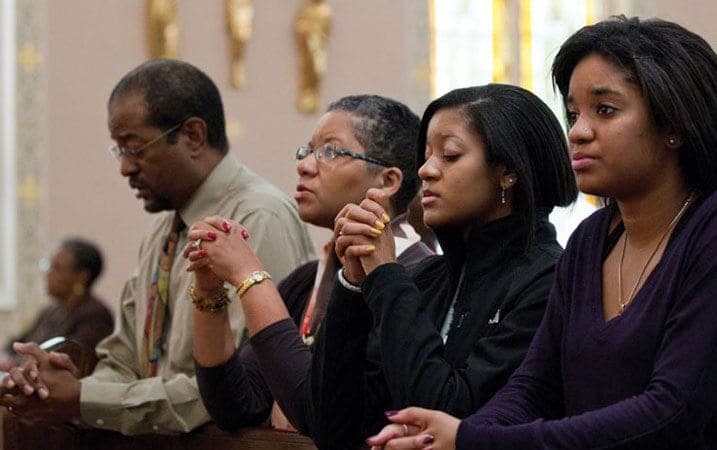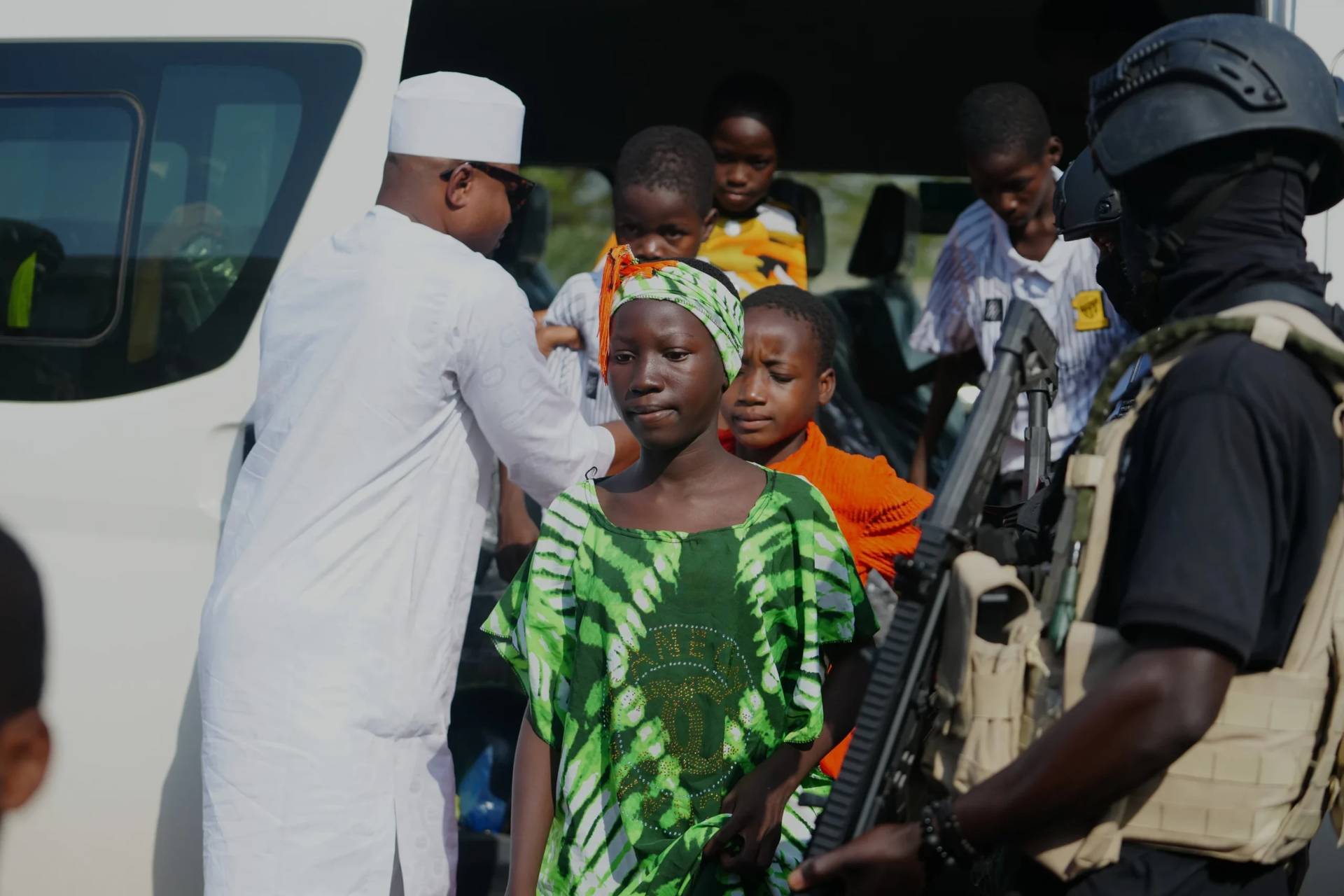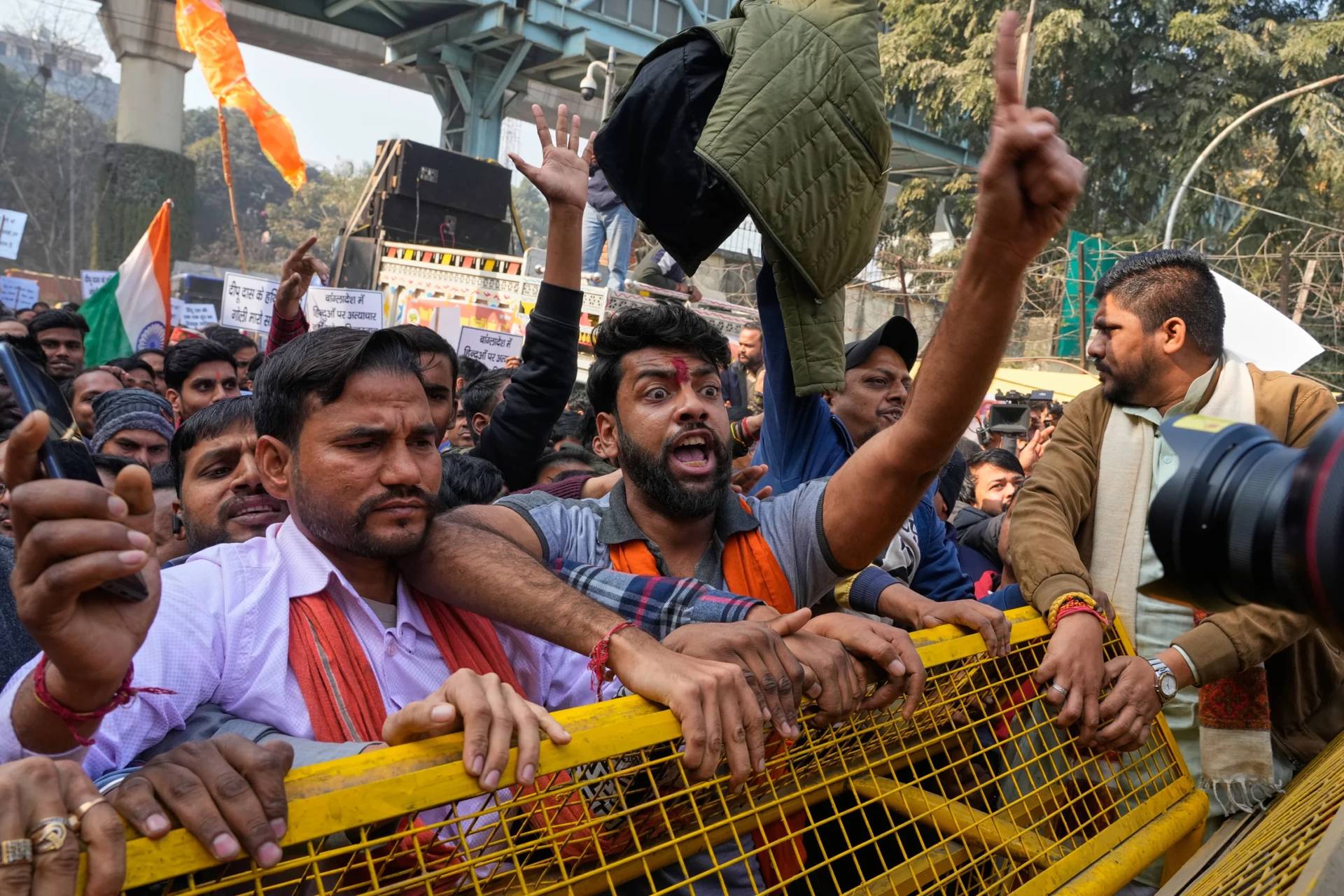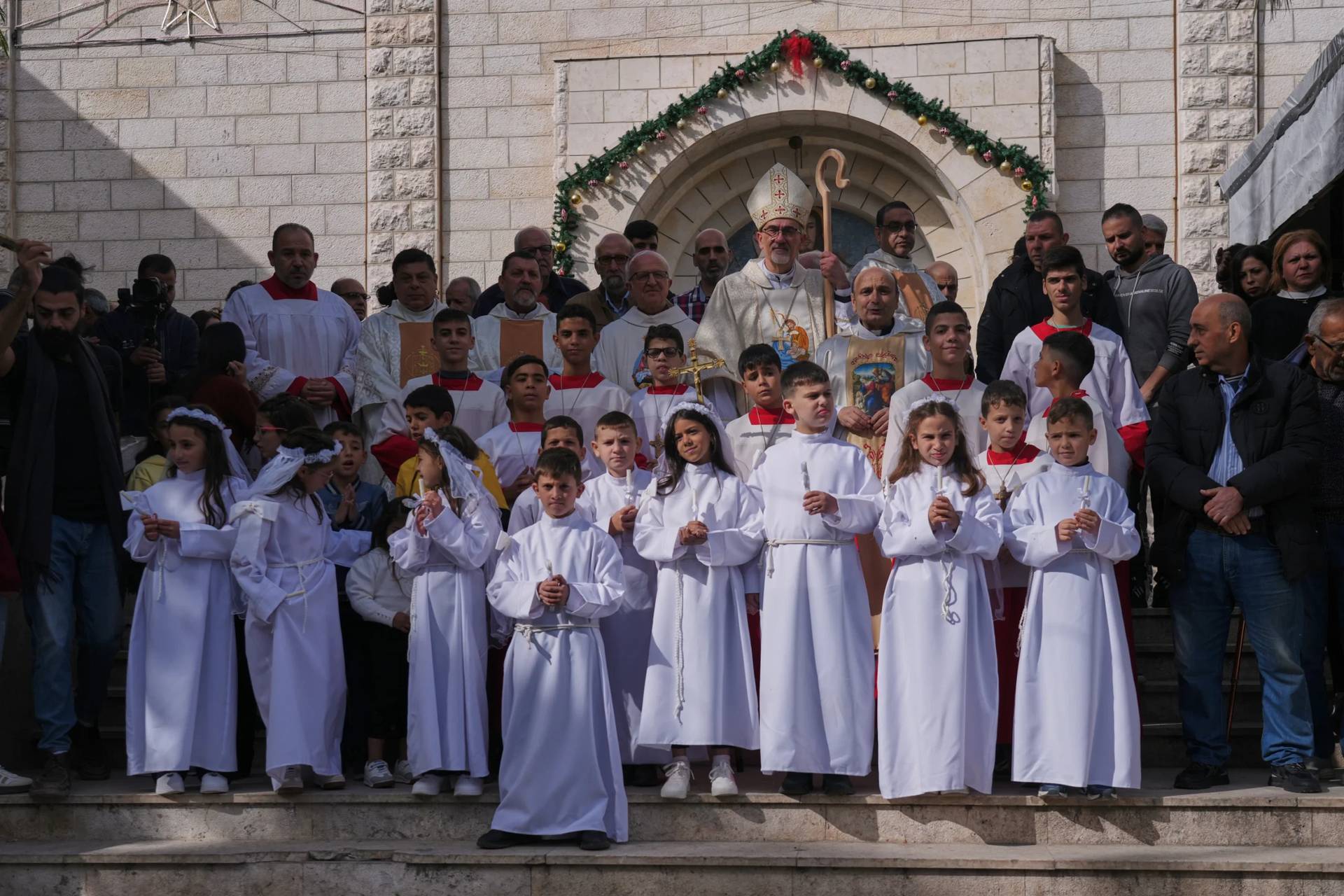ANAHEIM – Is it possible to be black and Catholic in the United States? According to one Catholic scholar, it’s still an open question.
The Rev. Bryan N. Massingale, a priest and scholar of black Catholicism, believes that as long as the Church continues to operate as “a white institution,” full integration of black culture will remain elusive.
In remarks to the Los Angeles Religious Education Congress, meeting here this week, Massingale said the effort “to bring black cultural expression into the Church is met with anxiety and fear and rejection and hostility that doesn’t surround Irish or German or Polish” Catholicism in the United States.
“No one complains when we have a St. Patrick’s Day parade and the Irish get together to do their thing,” said Massingale, a theology professor at Marquette University. But “black cultural products arouse a fear hostility or suspicion” in white Catholic leaders.
After Vatican II, he said, bishops and black Catholic leaders tried to assure black Catholics that they could practice their faith without abandoning their cultural identity. In worship, for instance, this meant the introduction of Gospel music, clapping, and liturgical movement.
And while he acknowledged the advances made by these earlier efforts, he said the spirit of Vatican II hasn’t quite created the space once promised for African-Americans in the US Church.
He pointed to anecdotes from the two most recent papal visits to the United States as examples of how much room for improvement still exists.
When Pope Benedict XVI visited Washington in 2008, he said, many the Church’s cultural diversity was on display, including Gospel music from a black choir.
But he quoted a commentator for a major US Catholic television network covering the Mass who slammed the choir.
“We have just been subjected to an over-preening display of multicultural chatter, and now the Holy Father will begin the most sacred part of the Mass,” the commentator said.
The audience at the conference — a mix of whites, blacks, and Hispanics – gasped when Massingale read the quote.
“This was not repudiated by any top authority then, and no one has disowned it since,” said Massingale. “The fact that such a statement could be made shows that there are many of these voices in the Church.”
When Pope Francis visited in September, the lack of black Catholics involved in the pope’s major liturgies caused “offense and pain,” he said.
The pope’s stop in Philadelphia, he said, “was an egregious case in point.” The Gospel choirs were invited to warm up the crowds before the Mass began, only to be “shoved off” the stage “when the sacred part of the Mass happened.”
“Why is there this incompatibility, why is there this tension?” he asked. “Because in the Church in the US, Catholic equals white.”
Massingale, author of “Racial Justice and the Catholic Church,” said that many US dioceses are reluctant to embrace worship styles that stray from “European aesthetics” in music and theology, leading to “alienation” for many black Catholics. Many black Catholics, he said, already have one foot outside the Church, about to leave for good.
Church officials in Milwaukee, for example, told him that although he could use Gospel music in black churches, it wasn’t welcome in the cathedral. He said another diocese prohibits clapping or Gospel music unless the congregations are mostly black.
“What lies at the heart of this is a normative whiteness,” he said.
He said some Catholics recoil at his views of the Church, shocked to hear such harsh criticism from a priest.
“‘How can you be a priest and say such horrible things about Holy Mother Church?’ they ask,” he said. “Yes, the Catholic Church has problems, deep problems, and the only way I can remain it in ethically and sanely is by being committed to its transformation.”
When audience members stood up and talked about the vibrancy of certain black parishes, Massingale said he wanted more than “islands of success.”
“What I’m calling for is black Catholicism to the prophetic thorn that transforms the entire Church,” he said.
“We can’t go on doing what we’ve been doing. We have to be more honest about the depth of the problem,” he said. “We need a project that responds to the alienation many black Catholics have experienced.”
“I want us to form a Church that is practicing for the Kingdom of God,” he said.

















